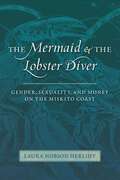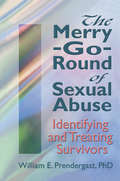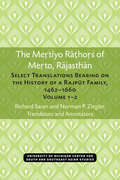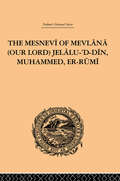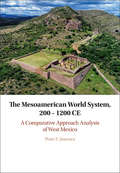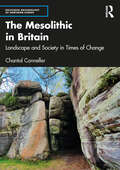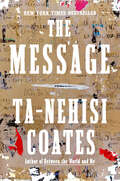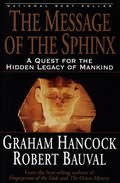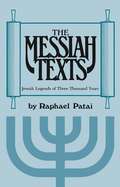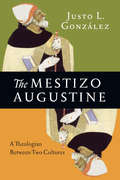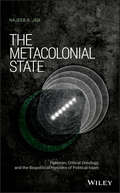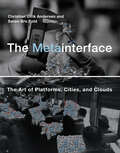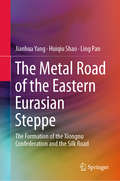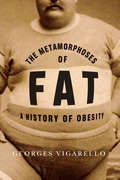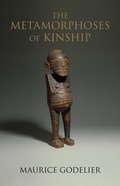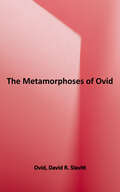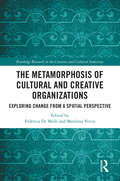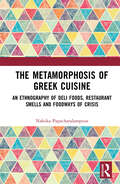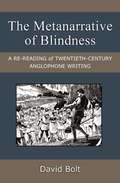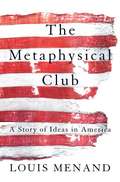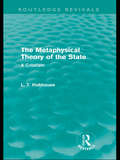- Table View
- List View
The Mermaid and the Lobster Diver: Gender, Sexuality, and Money on the Miskito Coast
by Laura Hobson HerlihyApproximately 90 percent of Miskitu boys and men in the Río Plátano Biosphere Reserve along the north coast of Honduras have worked as deepwater divers in the lobster industry and their participation has left an indelible imprint on their society. While lobster diving is lucrative, it is also a life-threatening occupation and many divers have been injured or killed from decompression sickness—locally referred to as liwa mairin siknis (Mermaid sickness). According to Miskitu folklore, the Mermaid is the main water spirit, owner of all fresh and saltwater resources and capable of punishing male divers for extracting too many of her lobsters. Wary of the wrath of the supernatural liwa mairin, these men face another threat on shore: Miskitu women who use sexual magic—praidi saihka—as a tool to control men&’s wages and ensure that they continue to provide them with money.Interspersed with short stories, songs, and incantations, The Mermaid and the Lobster Diver demonstrates the archetypes of femininity and masculinity within Miskitu society, highlighting the power associated with women&’s sexuality—as manifested in both goddess and human form—and the vulnerable position of men.
The Merry-Go-Round of Sexual Abuse: Identifying and Treating Survivors
by Letitia C Pallone William E PrendergastThe Merry-Go-Round of Sexual Abuse is a valuable guide to identifying, treating, and breaking the cycle of sexual abuse. Based on 30 years of professional experience in treating offenders and survivors of sexual assault and sexual molestation, Dr. Prendergast provides step-by-step guidelines and specialized treatment techniques most effective in producing change in this group of clients. Each technique is illustrated with pertinent case studies. This is a much-needed guide for professionals who often lack specific training in the identification and treatment of both offenders and survivors of sexual abuse.Prendergast identifies the survivors of sexual abuse, explores the “why sex” inquiry and discusses the characteristics of the abuser. Each topic is treated by first presenting a fact or principle which is then illustrated with a case study that exhibits the principle in practice. A broad range of topics essential to the treatment of offenders and survivors of sexual abuse are clearly explained in this book including: 18 factors to consider when working with survivors of sexual abuse behavioral effects of unresolved but consciously remembered sexual abuse and unidentified sexual trauma specialized interviewing techniques for survivors of sexual abuse specific treatment techniques for 4 different categories of sexual abuse--homosexual abuse (both seductive and assaultive), assaultive sexual abuse, incest, and long-term seductive sexual child abuse “self-confrontation” as a new therapy approach for survivors aftercare continuation and consistency therapist qualifications and cautionsThis book is an in-depth exploration of the topic, usually only touched on in college courses and graduate programs. It features treatment techniques that are not taught in schools or universities. Psychiatrists, psychologists, social workers, and counselors who are untrained in working with this specific group will benefit from these insightful discussions and specific case studies. The Merry-Go-Round of Sexual Abuse can easily be used as a complete training manual for practicing therapists as well as interns, trainees, and graduate students in the field of sexual abuse. In addition, police investigators, parents of either victims or abusers, significant others of survivors, survivors themselves, and the public in general will benefit from the understanding Prendergast offers on the problem of sexual abuse.
The Mertiyo Rathors of Merto, Rajasthan: Select Translations Bearing on the History of a Rajput Family, 1462–1660, Volumes 1–2 (Michigan Papers On South And Southeast Asia #51)
by Richard Saran Norman P. ZieglerThe Metiyo Rahos of Meto, Rajasthan is a treasure for scholars of Rajput history. Richard D. Saran and Norman P. Ziegler, whose contributions to Rajput studies are well known to specialists in the field, have given us a work of deep and exacting scholarship. It is the culmination of decades devoted to the study of Middle Marwari chronicles from Rajasthan. The sources translated here provide access to the fortunes of a branch of the Jodhpur royal family, and in doing so they illuminate the larger world of Rajputs in the middle period. The Metiyo Rahos are significant for several reasons. Their story traces the emergence of a Rajput brotherhood into local prominence and follows the establishment of their kingdom on the eastern edge of Marva as a defined territorial unit. The evolution of the Metiyos as a brotherhood passed through several clearly defined stages, including a relationship with the house of Jodhpur that ranged from mutual support among brothers to hostility and clear separation. A study of the Metiyos in this context provides a unique view of the formation of a strong and indpenedent Rajput cadet line, of the establishment and defense of a local territory, and of the internal relations among Rajput brotherhoods regarding issues of precedence, honor, patronage, and service. The translations are accompanied by an extensive explanatory apparatus taking various forms, which includes a valuable essay on Rajput social organization, complete genealogies, and biographies of all the major personages of the chronicles.
The Mesnevi of Mevlana (Our Lord) Jelalu-'D-Din, Muhammed, Er-Rumi
by James W. RedhouseOriginally published in 1881, The Mesnevi of Mevlana (Our Lord) Jelalu-'D-Din, Muhammed, Er-Rumi is a volume that accounts of the life, acts of the author and historian El Eflaki who was a disciple of Chelebi Emir Arif, a grandson of the author of the Mesnevi. Arfi died in 1320 but the dates of Arif's successors have been carried down to 1353 when Eflaki's collection of anecdotes was completed.
The Mesoamerican Ballgame
by David R. Wilcox Vernon L. ScarboroughSome 20 scholars have contributed to this study of a Mesoamerican rubber-ball game played on a masonry court in many different forms and on many different levels--religious, political, recreational--over a period of 2,000 years and a range of a million square miles from Central America up into Arizona (vestiges of ancient courts remain near Flagstaff).
The Mesoamerican World System, 200–1200 CE: A Comparative Approach Analysis of West Mexico
by Peter F. JimenezBetween 200 and 1200 CE Central Mexico was the setting for the formation and disintegration of two states, Teotihuacan and Tula. At their peaks, both urban centers established distant ties throughout Mesoamerica. The nature of their relations has been the focus of analysis and debate for decades. In this study, Peter Jimenez uses the latest advances in world-systems analysis to study interaction networks in West Mexico from the early Classic to Post-classic period. He demonstrates how the archaeological record contains empirical evidence for the impact of global processes on local developments, in detail, in realms, and at spatial scales, which are revealed here for the first time. His examination of West Mexico's relations to the core states of Central Mexico also underscores the critical role that the semi-periphery played in overall world-system configuration and operation in ancient Mesoamerica.
The Mesolithic in Britain: Landscape and Society in Times of Change (Routledge Archaeology of Northern Europe)
by Chantal ConnellerThe Mesolithic in Britain proposes a new division of the Mesolithic period into four parts, each with its distinct character. The Mesolithic has previously been seen as timeless, where little changed over thousands of years. This new synthesis draws on advances in scientific dating to understand the Mesolithic inhabitation of Britain as a historical process. The period was, in fact, a time of profound change: houses, monuments, middens, long-term use of sites and regions, manipulation of the environment and the symbolic deposition of human and animal remains all emerged as significant practices in Britain for the first time. The book describes the lives of the first pioneers in the Early Mesolithic; the emergence of new modes of inhabitation in the Middle Mesolithic; the regionally diverse settlement of the Late Mesolithic; and the radical changes of the final millennium of the period. The first synthesis of Mesolithic Britain since 1932, it takes both a chronological and a regional approach. This book will serve as an essential text for anyone studying the period: undergraduate and graduate students, specialists in the field and community archaeology groups.
The Mesolithic in Britain: Landscape and Society in Times of Change (Routledge Archaeology of Northern Europe)
by Chantal ConnellerThe Mesolithic in Britain proposes a new division of the Mesolithic period into four parts, each with its distinct character.The Mesolithic has previously been seen as timeless, where little changed over thousands of years. This new synthesis draws on advances in scientific dating to understand the Mesolithic inhabitation of Britain as a historical process. The period was, in fact, a time of profound change: houses, monuments, middens, long-term use of sites and regions, manipulation of the environment and the symbolic deposition of human and animal remains all emerged as significant practices in Britain for the first time. The book describes the lives of the first pioneers in the Early Mesolithic; the emergence of new modes of inhabitation in the Middle Mesolithic; the regionally diverse settlement of the Late Mesolithic; and the radical changes of the final millennium of the period. The first synthesis of Mesolithic Britain since 1932, it takes both a chronological and a regional approach.This book will serve as an essential text for anyone studying the period: undergraduate and graduate students, specialists in the field and community archaeology groups.
The Message
by Ta-Nehisi Coates#1 NATIONAL BESTSELLER • NEW YORK TIMES BESTSELLER • The renowned author of Between the World and Me journeys to three resonant sites of conflict to explore how the stories we tell—and the ones we don&’t—shape our realities.&“Ta-Nehisi Coates always writes with a purpose. . . . These pilgrimages, for him, help ground his powerful writing about race.&”—Associated Press&“Coates exhorts readers, including students, parents, educators, and journalists, to challenge conventional narratives that can be used to justify ethnic cleansing or camouflage racist policing. Brilliant and timely.&”—Booklist (starred review)FINALIST FOR THE LOS ANGELES TIMES BOOK PRIZE • A BEST BOOK OF THE YEAR: The New York Times Book Review, NPR, Vanity Fair, Town & Country, Electric LitTa-Nehisi Coates originally set out to write a book about writing, in the tradition of Orwell&’s classic &“Politics and the English Language,&” but found himself grappling with deeper questions about how our stories—our reporting and imaginative narratives and mythmaking—expose and distort our realities.In the first of the book&’s three intertwining essays, Coates, on his first trip to Africa, finds himself in two places at once: in Dakar, a modern city in Senegal, and in a mythic kingdom in his mind. Then he takes readers along with him to Columbia, South Carolina, where he reports on his own book&’s banning, but also explores the larger backlash to the nation&’s recent reckoning with history and the deeply rooted American mythology so visible in that city—a capital of the Confederacy with statues of segregationists looming over its public squares. Finally, in the book&’s longest section, Coates travels to Palestine, where he sees with devastating clarity how easily we are misled by nationalist narratives, and the tragedy that lies in the clash between the stories we tell and the reality of life on the ground. Written at a dramatic moment in American and global life, this work from one of the country&’s most important writers is about the urgent need to untangle ourselves from the destructive myths that shape our world—and our own souls—and embrace the liberating power of even the most difficult truths.
The Message of the Sphinx: A Quest for the Hidden Legacy of Mankind
by Graham Hancock Robert BauvalIn this riveting account of historical and archaeological investigation, the authors present hard evidence that the Sphinx, the Pyramids, and the other monuments at Giza are of far more ancient origin than previously believed. Complete with evidence of a conspiracy between the Egyptology establishment and various confidential organizations to keep the secrets of the Pyramids from the world, The Message of the Sphinx is also a modern-day detective story. of photos.
The Messiah Texts: Jewish Legends of Three Thousand Years
by Raphael PataiFollowing a detailed introduction to the world of messianic ideology and its significance in Jewish history, The Messiah Texts traces the progress of the messianic legend from its biblical beginnings to contemporary expressions.Renowned scholar Raphael Patai has skillfully selected passages from a voluminous literature spanning three millennia. Using his own translations from Hebrew, Aramaic, Arabic, Latin, and other original texts, Patai excerpts delightful folk tales, apocalyptic fantasies, and parables of prophetic power. All are central to the understanding of a magnificent heritage. patai also investigates the false messiahs who have appeared throughout Jewish history, the modern Messiah-influenced movements such as reform Judaism and Zionism, and the numerous reasons put forth by the various branches of Judaism as to why the Messiah has not yet appeared.
The Mestizo Augustine: A Theologian Between Two Cultures
by Justo L. GonzálezFew thinkers have been as influential as Augustine of Hippo. His writings, such as Confessions and City of God, have left an indelible mark on Western Christianity. He has become so synonymous with Christianity in the West that we easily forget he was a man of two cultures: African and Greco-Roman. The mixture of African Christianity and Greco-Roman rhetoric and philosophy gave his theology and ministry a unique potency in the cultural ferment of the late Roman empire. Augustine experienced what Latino/a theology calls mestizaje, which means being of a mixed background. Cuban American historian and theologian Justo González looks at the life and legacy of Augustine from the perspective of his own Latino heritage and finds in the bishop of Hippo a remarkable resource for the church today. The mestizo Augustine can serve as a lens by which to see afresh not only the history of Christianity but also our own culturally diverse world.
The Metacolonial State: Pakistan, Critical Ontology, and the Biopolitical Horizons of Political Islam (Antipode Book Series)
by Najeeb A. Jan'An urgent and extraordinary book. Weaving a philosophical analysis of Heidegger, Agamben and Foucault, Jan draws out the implications of their thought for a radical analysis of the ontological politics of Islam and Pakistan. Whether writing about the 'Ulama and Deoband schools, blasphemy laws, the military, beards, or the Bamiyan Buddhas, Jan provokes and challenges our thinking while unearthing the ground on which Pakistan—and our world—are built.' —Joel Wainwright, Department of Geography, Ohio State University, USA 'In this exceptionally inventive and important book, Jan shows us that the problems besetting political life in Pakistan are part of a more troubling crisis in modern forms of power. Challenging accounts that cordon off "political Islam" from "the West," Jan discloses their fundamental indistinction and thus, through his practice of critical ontology, reorients our understanding of how power and violence are at work in the world.' —Joshua Barkan, Department of Geography, University of Georgia, USA The Metacolonial State presents a novel rethinking of the relationship between Islam and the Political. Key to the text is an original argument regarding the "biopoliticization of Islam" and the imperative need for understanding sovereign power and the state of exception in resolutely ontological terms. Through the formulation of a critical ontology of political violence, The Metacolonial State endeavors to shed new light on the signatures of power undergirding postcolonial life, while situating Pakistan as a paradigmatic site for reflection on the nature of modernity's precarious present. The cross-disciplinary approach of Dr. Jan's work is certain to have broad appeal among geographers, historians, anthropologists, postcolonial theorists, and political scientists, among others. At the same time, his explication of critical ontology – with its radical reading of the interlacement of history, power and the event – promises to add a bold new dimension to social science research on Islamism and biopolitics.
The Metainterface: The Art of Platforms, Cities, and Clouds (The\mit Press Ser.)
by Christian Ulrik Andersen Soren Bro PoldHow the interface has moved from the PC into cultural platforms, as seen in a series of works of net art, software art and electronic literature.The computer interface is both omnipresent and invisible, at once embedded in everyday objects and characterized by hidden exchanges of information between objects. The interface has moved from office into culture, with devices, apps, the cloud, and data streams as new cultural platforms. In The Metainterface, Christian Ulrik Andersen and Søren Bro Pold examine the relationships between art and interfaces, tracing the interface's disruption of everyday cultural practices. They present a new interface paradigm of cloud services, smartphones, and data capture, and examine how particular art forms—including net art, software art, and electronic literature—seek to reflect and explore this paradigm.Andersen and Pold argue that despite attempts to make the interface disappear into smooth access and smart interaction, it gradually resurfaces; there is a metainterface to the displaced interface. Art can help us see this; the interface can be an important outlet for aesthetic critique. Andersen and Pold describe the “semantic capitalism” of a metainterface industry that captures user behavior; the metainterface industry's disruption of everyday urban life, changing how the city is read, inhabited, and organized; the ways that the material displacement of the cloud affects the experience of the interface; and the potential of designing with an awareness of the language and grammar of interfaces.
The Metal Road of the Eastern Eurasian Steppe: The Formation of the Xiongnu Confederation and the Silk Road
by Jianhua Yang Huiqiu Shao Ling PanThis book is one of the first to systematically explore cultural interactions between the Northern Zone of China and the Eurasian Steppe, with a focus on the formation process of the Xiongnu Confederation and the Silk Road. Combining partition and staging analyses, the authors adopt a broad perspective, viewing the Northern Zone as part of the Eurasian Steppe and combining history with culture by investigating the spread of bronze artifacts. In addition, with more than three hundred figures and color photographs, it offers readers a uniquely grand panorama of two thousand years of cultural interactions between the Northern Zone of China and the Eurasian Steppe.
The Metallurgy of Roman Silver Coinage
by Kevin Butcher Jane Evans Vanessa Pashley Matthew Ponting Christopher Somerfield Kevin Butcher Matthew Ponting Jane Evans Vanessa Pashley Christopher SomerfieldThe fineness of Roman imperial and provincial coinage has been regarded as an indicator of the broader fiscal health of the Roman Empire, with the apparent gradual decline of the silver content being treated as evidence for worsening deficits and the contraction of the supply of natural resources from which the coins were made. This book explores the composition of Roman silver coinage of the first century AD, re-examining traditional interpretations in the light of an entirely new programme of analyses of the coins, which illustrates the inadequacy of many earlier analytical projects. It provides new evidence for the supply of materials and refining and minting technology. It can even pinpoint likely episodes of recycling old coins and, when combined with the study of hoards, hints at possible strategies of stockpiling of metal. The creation of reserves bears directly on the question of the adequacy of revenues and fiscal health.
The Metamorphoses of Fat: A History of Obesity (European Perspectives: A Series in Social Thought and Cultural Criticism)
by Georges VigarelloGeorges Vigarello maps the evolution of Western ideas about fat and fat people from the Middle Ages to the present, paying particular attention to the role of science, fashion, fitness crazes, and public health campaigns in shaping these views. While hefty bodies were once a sign of power, today those who struggle to lose weight are considered poor in character and weak in mind. Vigarello traces the eventual equation of fatness with infirmity and the way we have come to define ourselves and others in terms of body type. Vigarello begins with the medieval artists and intellectuals who treated heavy bodies as symbols of force and prosperity. He then follows the shift during the Renaissance and early modern period to courtly, medical, and religious codes that increasingly favored moderation and discouraged excess. Scientific advances in the eighteenth century also brought greater knowledge of food and the body's processes, recasting fatness as the "relaxed" antithesis of health. The body-as-mechanism metaphor intensified in the early nineteenth century, with the chemistry revolution and heightened attention to food-as-fuel, which turned the body into a kind of furnace or engine. During this period, social attitudes toward fat became conflicted, with the bourgeois male belly operating as a sign of prestige but also as a symbol of greed and exploitation, while the overweight female was admired only if she was working class. Vigarello concludes with the fitness and body-conscious movements of the twentieth century and the proliferation of personal confessions about obesity, which tied fat more closely to notions of personality, politics, taste, and class.
The Metamorphoses of Kinship
by Maurice Godelier Nora ScottWith marriage in decline, divorce on the rise, the demise of the nuclear family, and the increase in marriages and adoptions among same-sex partners, it is clear that the structures of kinship in the modern West are in a state of flux.In The Metamorphoses of Kinship, the world-renowned anthropologist Maurice Godelier contextualizes these developments, surveying the accumulated experience of humanity with regard to such phenomena as the organization of lines of descent, sexuality and sexual prohibitions. In parallel, Godelier studies the evolution of Western conjugal and familial traditions from their roots in the nineteenth century to the present. The conclusion he draws is that it is never the case that a man and a woman are sufficient on their own to raise a child, and nowhere are relations of kinship or the family the keystone of society.Godelier argues that the changes of the last thirty years do not herald the disappearance or death agony of kinship, but rather its remarkable metamorphosis--one that, ironically, is bringing us closer to the "traditional" societies studied by ethnologists.
The Metamorphoses of Ovid
by OvidWritten between A.D. 2 and 8, Ovid's long poem The Metamorphoses gave a great number of Greek and Roman myths the form in which they are known today. Now David Slavitt, translator of the widely acclaimed Ovid's Poetry of Exile, has fashioned a splendid new English verse translation of what is perhaps the best-known work of one of Western civilization's major poets. In Slavitt's freely inventive but emotionally accurate renderings, the voice of Ovid speaks again to a new generation of readers.
The Metamorphosis of Cultural and Creative Organizations: Exploring Change from a Spatial Perspective (Routledge Research in the Creative and Cultural Industries)
by Federica De Molli and Marilena VeccoOrganizations in the creative and cultural sector are experiencing transformational change. This book offers a new way of exploring the transformational processes that these organizations are going through, by focusing on their organizational space. By bringing together theoretical and empirical contributions from international scholars belonging to different fields of research, such as management, entrepreneurship, sociology, philosophy and anthropology, this volume seeks to provide readers with a multifaceted, comprehensive understanding of the changes that creative and cultural organizations are facing. By exploring them from an original perspective – the spatial one – this volume provides the foundations for developing a coherent research debate on the spatial dimension of creative and cultural organizations, leading to a new research agenda. This book contributes to our understanding of the ‘space’ of the creative and cultural industries and will be a useful reading for scholars involved in arts and cultural management in particular, as well as the social and human sciences more broadly. This book will inspire and inform researchers and managers who look with curiosity at the changes taking place in the creative and cultural sectors.
The Metamorphosis of Greek Cuisine: An Ethnography of Deli Foods, Restaurant Smells and Foodways of Crisis
by Nafsika PapacharalampousThis book is an ethnography of the metamorphosis of rural foods and traditional dishes and of the making of cuisine and identity in contemporary Athens. In the wake of the financial crisis in Athens in the mid-2015s, forgotten rural foods of the past are transformed into luxurious artisanal foods, while traditional dishes appear reinvented in fine-dining restaurants, after decades of darkness. How, and why is this all happening in a city of poverty, hardship and economic crisis? Through sensory descriptions and thick ethnographic material, it follows the Athenian affluent middle class in upscale delis and goes inside fine-dining restaurant kitchens, discussing the complex combination of cuisine, tradition, memory and identity, revealing the cultural logic and social aspects of cuisine. It demonstrates how cuisine emerges from very different, often contradictory social spaces, not only as an intellectual and aesthetic endeavour of chefs or as a revival of foods and foodways that link the country and the city, but also as interlinked with embodied memories and embedded in social relations and commensality. This book will be of great interest to scholars and students in Anthropology and Food Studies.
The Metanarrative Of Blindness: A Re-reading Of Twentieth-century Anglophone Writing
by David Bolt<P>Although the theme of blindness occurs frequently in literature, literary criticism has rarely engaged the experiential knowledge of people with visual impairments. The Metanarrative of Blindness counters this trend by bringing to readings of twentieth-century works in English a perspective appreciative of impairment and disability. Author David Bolt examines representations of blindness in more than forty literary works, including writing by Kipling, Joyce, Synge, Orwell, H. G. Wells, Susan Sontag, and Stephen King, shedding light on the deficiencies of these representations and sometimes revealing an uncomfortable resonance with the Anglo-American science of eugenics. <P>What connects these seemingly disparate works is what Bolt calls “the metanarrative of blindness,” a narrative steeped in mythology and with deep roots in Western culture. Bolt examines literary representations of blindness using the analytical tools of disability studies in both the humanities and social sciences. His readings are also broadly appreciative of personal, social, and cultural aspects of disability, with the aim of bringing literary scholars to the growing discipline of disability studies, and vice versa. This interdisciplinary monograph is relevant to people working in literary studies, disability studies, psychology, sociology, applied linguistics, life writing, and cultural studies, as well as those with a general interest in education and representations of blindness.
The Metaphor of Celebrity
by Joel DeshayeThe Metaphor of Celebrity is an exploration of the significance of literary celebrity in Canadian poetry. It focuses on the lives and writing of four widely recognized authors who wrote about stardom - Leonard Cohen, Michael Ondaatje, Irving Layton, and Gwendolyn MacEwen - and the specific moments in Canadian history that affected the ways in which they were received by the broader public.Joel Deshaye elucidates the relationship between literary celebrity and metaphor in the identity crises of celebrities, who must try to balance their public and private selves in the face of considerable publicity. He also examines the ways in which celebrity in Canadian poetry developed in a unique way in light of the significant cultural events of the decades between 1950 and 1980, including the Massey Commission, the flourishing of Canadian publishing, and the considerable interest in poetry in the 1960s and 1970s, which was followed by a rapid fall from public grace, as poetry was overwhelmed by greater popular interest in Canadian novels.
The Metaphysical Club: A Story of Ideas in America
by Louis MenandWinner of the 2002 Pulitzer Prize for History, a riveting, original book about the creation of modern American thought. The Metaphysical Club was an informal group that met in Cambridge, Massachusetts, in 1872, to talk about ideas. Its members included Oliver Wendell Holmes, Jr., future associate justice of the United States Supreme Court; William James, the father of modern American psychology; and Charles Sanders Peirce, logician, scientist, and the founder of semiotics. The Club was probably in existence for about nine months. No records were kept. The one thing we know that came out of it was an idea -- an idea about ideas.
The Metaphysical Theory of the State: A Criticism - Primary Source Edition (Routledge Revivals)
by L. T. HobhouseOriginally published in 1918, this enduring work by renowned sociologist and Liberal politician Leonard Trelawny Hobhouse encompasses a series of five key lectures, first delivered at the London School of Economics in the autumn of 1917. Outlining Hobhouse's theories on social investigation, freedom, law and the will of the state, this edition revives an important work, which has long been unavailable.
